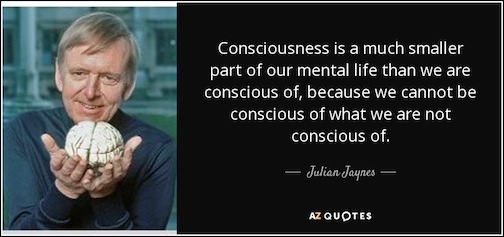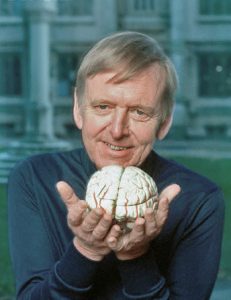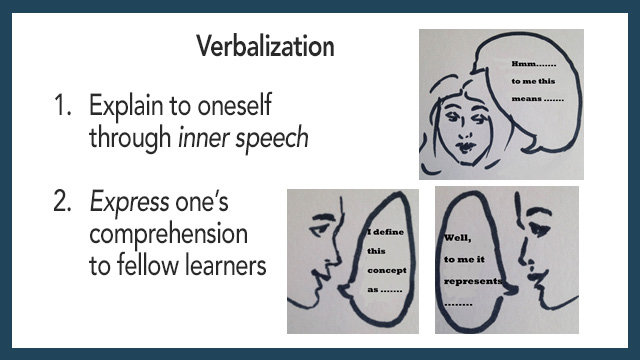The Five Reasons We’re Trans
The Fifth Factor of Transgender Causation
After a good deal of research and analysis, I have identified a fifth factor in the causation of transgender behavior. I took a long journey to find it but it was there in front of me, all along.
There is still a lot of work for me to do to nail it down but I believe that I am onto something that is supported by scientific evidence.
Readers of these posts know that I have found evidence for four factors involved in causing transgender behavior. They are similar to factors for other behaviors. Unlike other behaviors, transgender behavior allows us to isolate them. This is because being transgender stands out as something people do in the face of cultural rejection.
The four factors I had documented were:
1. Genetic Predisposition
2. Epigenetic Unblocking
3. Cultural Gender System
4. Early Gender Learning
To these I now add:
5. Free Will Consciousness
That is a mouthful, so let me explain. No, this is not mystical, ethereal, new age BS, it has to do with objective functioning of the brain. As a scientist, I would not have it any other way.
You probably have experienced consciousness as I am going to describe it. You undoubtedly have heard that little voice in your head, debating whether to crossdress or transition. Oftentimes the discussion considered relationships, family and avoiding trouble from those who reject transgender people including law enforcement. All those things are real considerations as also is your gender behavior predisposition which you sense internally “in your gut.” It is as objective as what you see or hear through your other senses.
By consciousness, I do not mean whether one is awake or asleep or under the influence of anesthetics. This could better be called “reactivity” or “awareness.” By consciousness, I mean the highest evolved function of using verbalizations to analyze situations for planning and decision making. Subhuman animals do not have this function because they have not evolved sophisticated language. It is only present in humans. I will grant you that subhuman animals can signal each other but that is different from having language as a tool of analysis. Language provides representation of real things and can support reasoning using these representations. Daniel Dennett and others validate the idea of representation in consciousness through their research. Humans can use these tools to make decisions which we call free will. Consciousness allows us to project into the future using analogies based on previously verbalized experience and learning (Dedre Gentner). It is only when these analogies are verbalized that we achieve the highest function in the brain.
Scientists and philosophers search for physical cause and effect in physics, chemistry, biology, and psychology. The extension of this line of thinking is that all events are determined by physical causes. This is the philosophical slant of determinism. They tend to think that free will is an illusion rather than recognizing it as a function of the human brain. That is because it is fundamentally different from other functions and that it sets humans apart from other species. But it is not ethereal, other worldly, or disconnected from the body or reality. In fact, it works on a representation of reality. It is tethered to reality by language.
My mentor, Julian Jaynes, set out to find out when and how consciousness evolved. In order to do that, he had to define consciousness. But first, he defined what consciousness is not. There are over one hundred years of animal psychology research which indicates that animals can do many of the things we sometimes assume only humans can do. He found that human consciousness is a very small, particular part of our mental life. Things like perception, motor learning, concept learning and problem solving, can be performed by sub-human animals up until the point where language is required. Language is then needed to label a concept or solve a problem by analogy, or support verbalizations to guide motor learning. My daughters learned to ride a bicycle only after my repeated instructions to steer into the side that the bicycle was leaning to maintain balance. And without proper training or exposure to logic and rationality, many humans are not able to complete some of the harder examples of these tasks.
Human consciousness, then is defined as a verbal representation and reasoning function, analogous to the real world. Even if one is thinking about fictional characters and situations, language anchors us back to real things.
So how does this factor play with regard to being transgender? We all develop a genetic gender predisposition (factor 1) which, if unblocked by epigenetic mechanisms (factor 2), becomes a trait. Epigenetics refers to modifications of genetic DNA or its expression as a trait. Cultures develop a gender system (factor 3): a set of recognized gender behaviors, categories, and rules for expressing these behaviors. In Western culture, newborns are assigned to one of two gender behavior categories, masculine or feminine based on sex. Sex is almost always assigned at birth through external anatomical inspection. That is because we are just starting to understand the network of 5000 or so genes that are expressed to result in reproductive organs. As a child grows, the child experiences gender behaviors in their culture (factor 4) and reacts to these behaviors, based on their genetic gender predisposition.
And now. . . The child verbalizes the gender system and their reaction to gender behaviors. The child uses conscious language to decide which gender category fits them best (factor 5) (some children cannot achieve this and follow a mixture of individual gender behaviors either permanently or temporarily, so called non-binary or gender fluid). Transgender children, of their free will, choose a gender category that does not agree with the category assigned to them at birth. It is a conscious verbal choice. (Of course, this process may not occur until teenage years or adulthood.) That is not to say that this choice is permanent, children and adults change their conscious minds.
I realize that this formulation may be controversial but it is based on the objective scientific evidence I turned up. Deviations from the facts contribute to hate mongering on both sides of the political spectrum. On one hand, the radical political right takes a deterministic stance and assumes that gender is determined by sex (or is sex) and immutable. (Needless to say, their facts are untrue.) Therefore, they can brand transgender people as defective human beings and attempt reparative treatments as a “cure”. Their goal is to deny rights to life, liberty and property to people who are defective. Or at least to tell people that transgender people are responsible for their problems, make them afraid of transgender people and tell voters whom to vote for to make the situation go away (make us go away). Their goal is collectivist power by eroding individual sovereignty. Ultimately, they will want to discard transgender people as they have done historically (e.g. Nazi Germany, contemporary Russia, Texas, Florida) because we do not conform to the ideal.
On the radical left, gender (and sex) are made out totally to be choices which should not be denied. They deliberately ignore the four factors that precede this choice. Their goal is to use transgender people as pawns in their lust for collectivist power by shaming people and governments. As with the right, their goal also is collectivist power by eroding individual sovereignty. They want us to conform to behavior that the crowd chooses and they hope to be the leaders of the mob. Ultimately, they also will want to discard transgender people as they have done historically (e.g. Soviet Union) because we do not conform to the ideal.
Our critics often say that being transgender is “just” a conscious lifestyle choice. It is true that choice is involved. But the choice only occurs after much conscious thought that considers one’s personal reactions to culturally defined behaviors. The reactions occur down deep in one’s subconscious gut but our consciousness can sense them. We do our best to try to change those reactions thru reinterpretation and consideration of the likely rejections that we face for behaving in the “wrong” gender category. We also consciously consider effects on loved ones, family, careers, serving others, and quality of life. We often defer expression of our transgender behavior and only occasionally perform it, say at night or monthly. Many keep deferring it until later in life, like I did. That is because we feel responsibility to ourselves and others.
So, if someone says that being transgender is “just a conscious lifestyle choice”, just say “Yes, you bet your sweet ass it is a conscious choice, but I did not choose it lightly without considerable conscious thought! There is a cascade of real factors that presses down on me. Since I am a sovereign individual, I have the right to make that choice and dress as I wish and modify my body as I wish unless it legally harms someone.”
In this blogpost, I could only outline where I am headed in my research. This facet of human and transgender science deserves more attention than it has been given. There should be a book in it.
Watch this space!
Suggested Reading
Jaynes, Julian. (1976). The Origin of Consciousness in the Breakdown of the Bicameral Mind. Pages 27-47.
Dennett, Daniel. (1991). Consciousness Explained.
Gentner, Dedre. (1981). Mental Models
Gentner, Dedre. (2001). The Analogical Mind.
Category: Transgender Science







